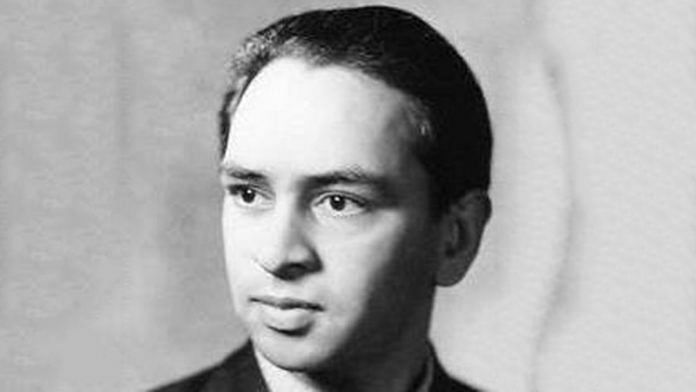A major name among Indian English writers, Mulk Raj Anand was a torchbearer of the 20th-century Progressive Writers’ Movement. He had drafted the first manifesto of the literary association.
Along with Raja Rao, R.K. Narayan and Ahmed Ali, Anand is considered one of the pioneers of Indian writing in English. His works attempted to capture the social realities of British India in the language of the colonial master.
On his 15th death anniversary, a look at his contribution to Indian literary history.
The journey to his first novel
Once, in Virginia Woolf’s drawing room, Anand was mocked by a young critic Edward Sackville-West for trying to write a novel about a lower-caste protagonist.
“He said superciliously, ‘Oh! There can be no novel about the poor! One can only laugh at the Cockneys like Dickens’. This unnerved me and made me feel hopeless about my confessional,” said Anand about the incident.
That novel turned out to be his seminal debut book, Untouchable (1935), about the struggles and humiliations faced by a toilet cleaner named Bakha. After the rather humiliating taunt about what would come to be his first novel, Anand travelled to Ireland and met poets George Russell and W.B. Yeats. It was Russell who advised him to return to India after he had relayed the incident that occurred in Woolf’s drawing-room.
“He said, ‘Son, go back to Gandhi for a year. He is struggling against the rejection of outcasts; at the same time he is fighting against imperialism’. And he wrote to Gandhi on my behalf,” said Anand.
He also wrote to Gandhi asking if he could visit the latter. To this, Gandhi replied with a postcard saying, “Come end of March, 1927”.
Anand had immediately left for Sabarmati Ashram in Ahmedabad and showed a draft of the Untouchable to Gandhi. “The next day he [Gandhi] told me, ‘I have looked at your novel. You seem to use big words. Harijans sigh, moan, groan! They do not use such heavy words. Write in a simpler language and transliterate what they say’,” he further said.
The author then rewrote the entire novel in the ashram and Gandhi approved its final draft. But 19 publishers rejected the manuscript, before a small company — Lawrence and Wishart — published it in 1935.
The preface, by noted English novelist and Anand’s friend E.M. Forster, was an important factor in finally getting the novel published.
“None of us is pure — we shouldn’t be alive if we were. But to the straightforward, all things can become pure, and it is to the directness of his attack that Mr Anand’s success is probably due,” Forster had said about the novel.
Also read: Mumbai loses a diamond: Boman Kohinoor of popular restaurant Britannia passes away at 97
‘He was accustomed to heartbreak’
Born on 12 December 1905, in Peshawar, Anand said his early writing was “naive, impetuous and sporadic utterances coming from intense feelings”. This is partly due to the fact that he was no stranger to sadness.
He described an early heartbreak in a darkly humorous tone: “I found myself falling in love with a young Muslim girl. Her parents married her off to a railway guard as his third wife, and this man murdered her because he found my love letters in her bag. You can imagine how much more existentialist I would feel.”
For Anand, disappointment was an intrinsic part of life from very early on. In his autobiographical piece, Apology For Heroism, Anand identifies himself as “one of the many groping young men of my generation who had begun to question everything in our background… and to feel the misery of the inert, disease-ridden, underfed, and illiterate people about us”.
Also read: Why Modi-Trump bonhomie reminds India, US of Nehru and Eisenhower
Literature and language, politics and aesthetics
While deeply committed to the cause of social change, Anand was also aware of the aesthetic experience of literature and therefore very rarely did his work descend into didacticism.
After Untouchable, Anand published various novels on different social issues that plagued Indian society. The British government banned one such novel, Two Leaves and a Bud. The story follows the trial of an English planter after he murdered his coolie, who was trying to prevent the planter from raping his daughter. A British jury eventually acquits the planter.
Anand was in London when most of his novels were published. When asked about the stark realism in his works once, he had said, “I could write in the language of the people because I lived in my mother’s village.”
Post Independence, he became severely disillusioned by the direction in which the country was going and this continued to be a key voice of criticism in his works.
On the Hindu revivalist movement in 1992, Anand wrote, “Hinduism as a cosmic religion was a tremendous achievement of mankind, but unfortunately I find its degradation in the recent communal conflicts over Ram Janma Bhoomi Temple and the Babri Mosque.”
“We have to fight against revivalism in order to safeguard the values of secularism based on human brotherhood,” he added.
Anand passed away at the age of 98 on 28, September 2004 after a long battle with cancer. He has left behind a legacy of tolerance, secularism and social justice, and the celebration of human life itself.
“The substance of my work is the whole of my varied experience, the theme of my work became the whole man and the whole gamut of human relationships, rather than only a single part of it,” wrote Anand.
Also read: On Pash’s birthday, remembering the fiery poet killed so young by terrorists




A writer whom, I admire.
Jai Hind.
Dr. D. Shunmugajothi.